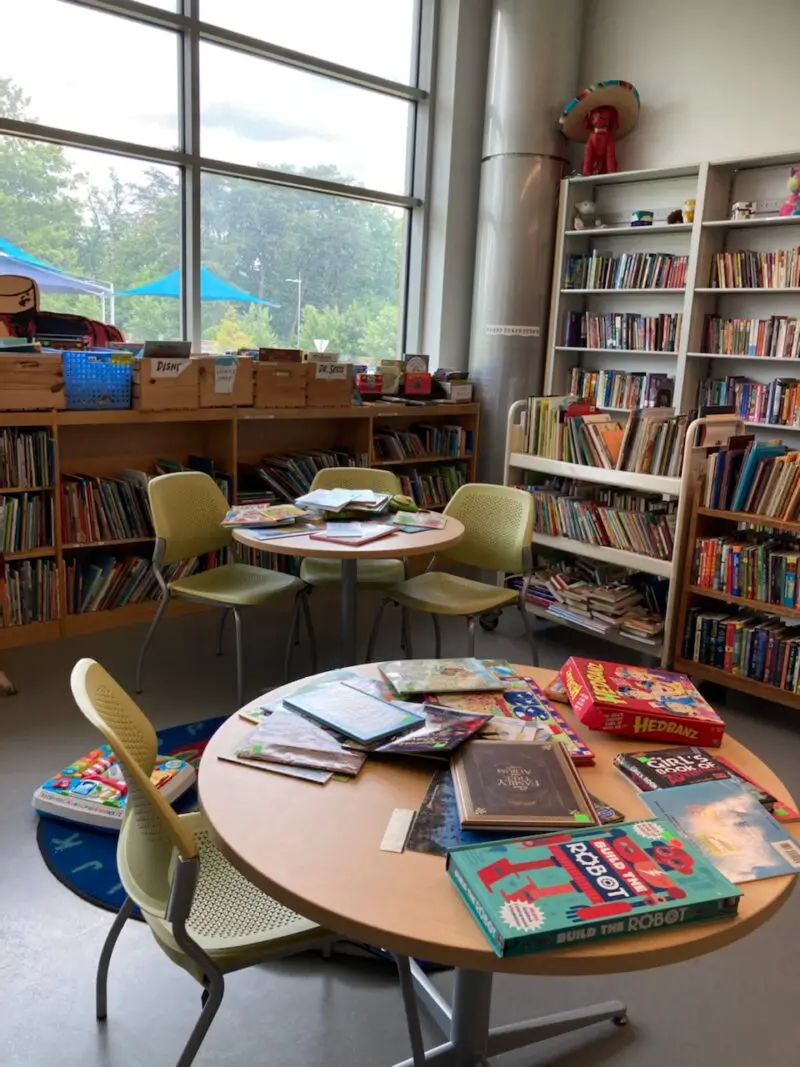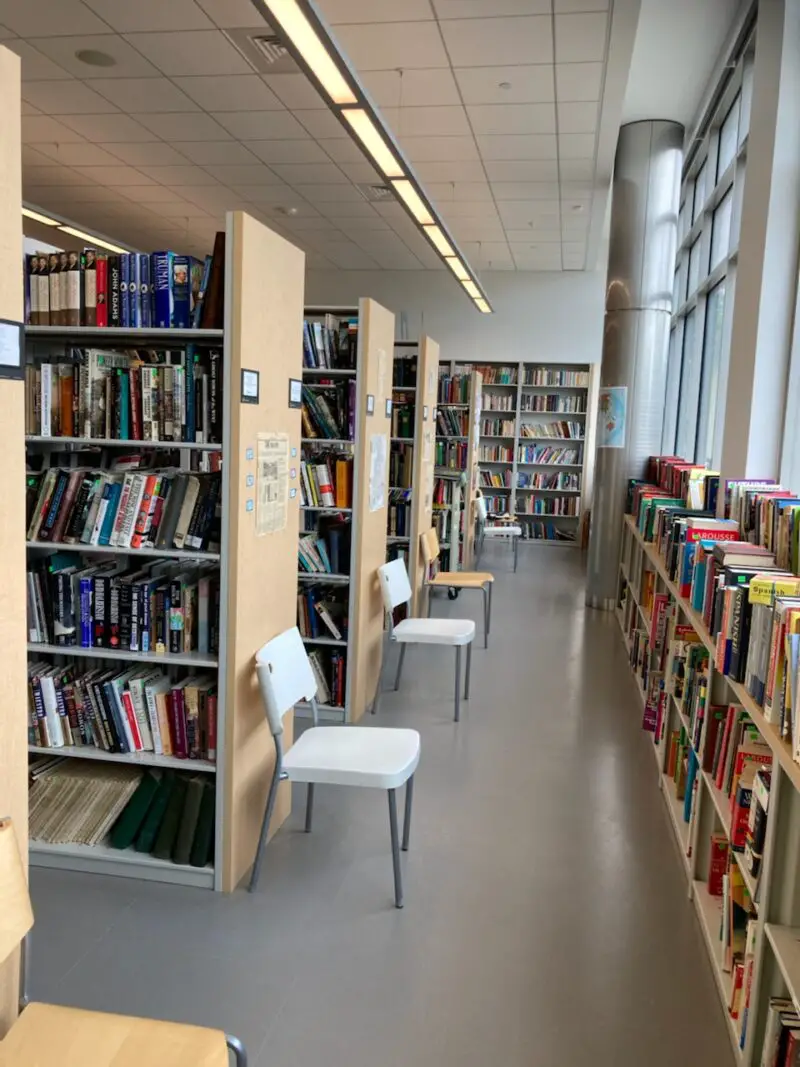A few decades ago, my husband and I found the house we wanted to turn into a home. He fell in the love with the backyard. I fell in love with an unfinished room that was to be the library I had always dreamed of owning.
Related: The Most Visually Stunning Libraries in the World
It took a few more years for us to finish that room, complete with two walls of floor-to-ceiling bookcases. After I had unpacked the few boxes of books that we owned, filling about half of one of those shelves, I thought – now what? How was I going to fill all those shelves?
A Discovery
A few more years and children came along, grew older, went to school, and had homework. I took them to the library where they worked and I browsed. I soon discovered a basement in the library filled with large bins jumbled high with books. There were hand-lettered signs stuck to the bins – Paperbacks, $0.10, Hardbacks, $ 0.25. These were books that the library had culled from their shelves or that had been donated. And they were for sale.
The Library Bookshop Then
I started picking through the bins discovering classics, modern fiction, nonfiction, children’s books, references, and textbooks. One of the things I loved finding was complete works. I acquired volumes with the complete works of Shakespeare, O. Henry, and Jack London. I found poetry collections and the best short story of the year collections. I found children’s books and references.

This was in the pre-internet period (for those of you who even know what that means). So, finding 25-cent dictionaries and thesauruses for every desk in the house was a valuable discovery. I acquired atlases and textbooks, which were great for helping with school reports and answering homework questions. I found rhyming dictionaries. My shelves quickly filled.
The Library Bookshop Now
Time has passed and I haven’t ‘shopped’ in the library for years and wondered if they were still selling books. A little exploration led to the answer. YES! I wrote that in capitals for a reason. There are no more jumbled bins in the basement. Now, the newly remodeled library contains a well-ordered and well-stocked bookstore that looks like any other small book shop. It has the same feeling of quiet reverence that one finds among those who love the written word and the sense of discovery from being surrounded by long rows of shelves overflowing with treasures waiting to be found.
Related: Shall I compare thee…In Praise of Ex-library books
Baseball books for the grandson who dreams of the Cy Young. History books that feel as old as the eras they depict. Atlases showing countries that no longer exist and missing some that have come into being. The works of authors who have fallen out of favor still live on those shelves waiting for new generations to uncover them.
There are still textbooks, collections of plays, and poetry. There is a lovely children’s section set up just like in any other bookstore. There’s a table where small children can browse through books while their parents shop an aisle away. Surrounding the table are shelves of picture books, middle-grade, and teen favorites.

Now, rather than the jumble of basement bins, the books are neatly arranged on shelves. They are organized by topic and by author name making it easy for patrons to find exactly what they are seeking.
As with most modern bookstores, there is more on sale than just books. There was a wonderful collection of old comic books for sale as well as LP records (raise your hand if you know what those are). Pat Boone, looking impossibly young, smiles back from the cover of a record undoubtedly containing wonderful music, assuming you have a way to play it. There is no coffee shop in the bookstore, but there is a lovely snack bar just outside the store in the spacious lobby.
The bookstore and library occupy the same building so some members of your party can take advantage of the library while others go shopping. One of the great features of using a library is the wonderful, book-loving, thoroughly knowledgeable librarians waiting to answer questions. The bookstore is run by all volunteers. But those volunteers are also book-lovers ready and willing to browse the shelves along with patrons looking for that book with the great story someone told them about but whose author they just can’t remember.
There is one thing that has not changed since I first found out that I could buy books from the library. Even though the library bookstore has gone from jumbled bins to neatly organized and labeled shelves, the books are still sold at incredible bargain prices! And the profits are used to keep the library open and to sponsor programs for the community.
And the Real Cost

Now that we have waxed poetic about such library bookstores, let’s change the conversation. Are these kinds of shops a great way to fund a public library system or are they unfair competition for local small bookstores? The library shop occupies space in a government building funded with taxpayer money. A spacious and free parking garage is provided for the use of any visitors to the library complex, which also includes a community center and a basketball court. Independent bookstores get no such support. Whatever space they occupy comes at a price.
The dedicated workers at the library bookshop most likely love the idea that their volunteer labor supports the library’s programs and acquisitions. Employees in commercial bookshops, whether small independents or large chains, work to support their families and need to be paid a reasonable wage.
When the ‘store’ consisted of a mixed-up jumble of books tossed into a bin, I believed that my labor in digging and sorting through the pile justified the savings in the cost of the books. But now that the library bookstore is as convenient and attractive as any other bookstore, are those $1, $2, and $3 prices fair and justifiable when local shops have to charge more to cover their expenses and survive?
Everyone loves a bargain – but at what expense?
